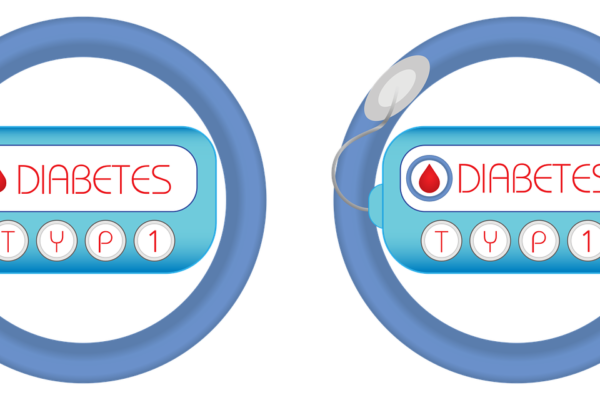Enterprise Resource Planning (ERP) systems are crucial for smooth operation of any institution, and these days Artificial intelligence (AI) has been making a significant impact on the healthcare industry, changing how we identify, treat, and monitor patients. By enabling more individualized therapies and delivering more precise diagnoses, technology is significantly enhancing healthcare research and outcomes. The ability of AI in healthcare to quickly analyze enormous amounts of clinical documentation aids in the identification of illness signs and trends that would otherwise go unnoticed by medical professionals.
Artificial intelligence (AI) in healthcare has a wide range of possible uses, from analysing radiological images for early detection to forecasting outcomes from electronic health information. Healthcare systems can become smarter, quicker, and more effective in providing treatment to millions of people worldwide by utilising artificial intelligence in hospital and clinic settings. The future of healthcare appears to be artificial intelligence, which will change how patients obtain high-quality treatment while reducing costs for providers and enhancing health outcomes.
The expansion of treatment choices thanks to several technological innovations in the healthcare industry has been accompanied by a digital transformation of operational and clinical procedures. Healthcare organisations now need to optimise their internal information flow and communications to provide effective care because of enhanced technology and affordable medical solutions. This is where healthcare Enterprise Resource Planning is useful.
Due to its strong features and capacity to provide top-notch patient care at minimal operational costs, healthcare ERP software solutions have achieved widespread adoption. ERP for hospitals enables organisations to combine numerous operational components in a single database, user interface, and application. It is based on business process management software.
ERP system in Healthcare
The ERP, or enterprise resource planning system, is a technological software solution made up of modules intended for data monitoring and enhancing departmental collaboration. Additionally, ERP healthcare solutions assist firms in automating operations, dismantling data silos, streamlining data, and making insightful decisions that have a long-term impact.
When it comes to handling key business operations like HR, finances, customer relations, inventory, etc, ERP for healthcare is advantageous. Healthcare organisations frequently struggle to achieve two key goals: provide patients with high-quality care while keeping costs down.
To improve patient care accessibility, medical institutions always need to upgrade their ERP systems. ERP for hospital management systems plays a vital role in reducing clinical errors and enhancing operations through increased efficiency and coordinated data analyses.
Beyond merely clinical and administrative requirements, healthcare organisation needs an ERP solution for a variety of reasons. What makes ERP solutions sustainable for the healthcare industry is the provision of first-rate care both internally and externally, combined with cost control, improved outcomes, and efficient performance.
Enterprise Resource Planning Market Share
During the projected period (2023-2028), the Enterprise Resource Planning Market is anticipated to increase from USD 50.98 billion in 2023 to USD 80.80 billion in 2028, at a CAGR of 9.65%.
The financial planning, budgeting, forecasting, and reporting processes inside an organisation are all facilitated by ERP software. Due to a sharp increase in enterprises globally and the demand for cloud-based ERP solutions, the necessity for supplier and customer relationship management is growing, which is accelerating the market’s growth pace.
The demand for ERP software, particularly cloud-based ERP software, is rising as a result of the increasing adoption of innovative and advanced technologies, the expansion of the value of existing ERP systems, the reduction of third-party dependencies, more highly secured resources, advanced financial systems, and other notable factors.
All business operations, including locating potential growth markets and products, are made more immediate by real-time data. Real-time analytics enhance analytical insights with the most recent information available, and scalable models with centralization through the establishment of centres of excellence are a way to reduce costs for improved profitability, which will drive the ERP Software Market over the forecast period.
The implementation problems brought on by ERP customization are a restraint on the ERP market. According to an ERP survey report, 93% of organisations tailored their ERP software based on the intended application. Without first determining if they need these features, many organisations embrace a variety of features that can over-customize an ERP system and increase its complexity, which can lead to implementation failures.
The ERP Software Market is divided into many categories based on deployment (on-premise, cloud, hybrid), end-user industry (retail, manufacturing, BFSI, government, telecom, military and defence, healthcare), organisation size (small and medium enterprises, large enterprises), and geography.
The COVID-19 pandemic posed a threat to the efficiency of international healthcare systems. The epidemic put a strain on the workforce, revealed flaws in the current systems, and threw off supply and demand cycles. Businesses are implementing cloud services to easily access data, optimise workflow, automate inventory and supply chain management tasks, and improve the industry’s financial and clinical outcomes as remote healthcare and employee working become more prevalent. Many hospitals had intended to launch their ERP during the pandemic. As an illustration, the CentraCare healthcare system in the United States chose to use Oracle Cloud. CentraCare’s position in managing the pandemic was strengthened by the ERP solution, which strengthened the company’s supply chain.
Artificial intelligence algorithms are continually being integrated into ERP systems by vendors and developers for a variety of purposes, including tailored patient interaction and data insights. 58% of software developers have already included or are incorporating AI in their ERP software, according to a 2019 research published in Becker’s Hospital Review. Data analytics for better decision-making and greater data processing skills are benefits of employing AI-enabled ERP systems. Additionally, these systems can be utilised for financial administration, sales and marketing automation, warehouse management, performance evaluation, and forecasting. Infor Coleman, NetSuite Intelligent Cloud Suite, SAP S/4HANA Cloud, and Microsoft Dynamics AI are a few examples of AI-based ERPs.
Players in the market continue to enhance their technological capabilities to produce cutting-edge items for the healthcare sector. Furthermore, in order to fuel the expansion of the healthcare enterprise resource planning market, the top players are concentrating on mergers and acquisitions, technical alliances, and product expansion tactics. For instance, in January 2021, Microsoft and SAP announced their strategic partnership and aims to combine Microsoft Teams and SAP’s intelligent portfolio of software products. The businesses formalised a significant expansion to speed up the deployment of SAP S/4HANA on Microsoft Azure in addition to their existing strategic collaboration. With the help of this alliance, SAP hopes to enhance the customer experience and broaden interoperability with Microsoft Azure.
The finance and billing category had the highest revenue share—more than 30.0%—in 2020. ERP systems are being quickly adopted by healthcare organisations to streamline operations and remove obstacles between front-end revenue cycle management activities and back-end activities like claims management. These systems are being adopted by businesses to get rid of financial data silos, track earnings, manage ledgers, manage fixed assets, manage risk, manage multi-currency, report, and manage taxes.
Over the projected period, the inventory and material management category is anticipated to develop at the fastest rate. ERP modules that are based on inventory and material management offer better reporting, real-time supply chain management, comprehensive inventory analysis, increased quality checks, and inventory planning. The software’s vast functionality breaks down information silos, automates many tasks, and optimises industrial processes. According to a March 2018 report by Xtelligent Healthcare Media, LLC, the organization’s supply ordering and administration have become more effective as a result of the integration of analytics and automation with inventory management
North America had the highest revenue share—more than 35.0%. The rapidly evolving and changing healthcare infrastructure, the rising need for cutting-edge technical solutions, and the sizeable presence of prominent market participants may all be attributable to this. In order to improve efficiency and cut costs, North American consumers are quickly implementing ERP systems. The advantages of ERP software, such as improved resource utilisation and improved caring efficiency, have contributed to the adoption of healthcare ERP in North America. Important companies in North America are developing new products and broadening their product lines to cater to small and medium-sized businesses.
Due to rising healthcare costs and a developing labour scarcity, Asia Pacific is expected to increase at the quickest rate during the projection period. Ineffective administration of the services provided by healthcare facilities, an expanding patient population, a rise in the use of cutting-edge technical solutions, and the appearance of start-ups are all contributing to the growth of the Asia Pacific market. Additionally, the sector is attracting both public and private infrastructure and promoting both economic growth and infrastructure expansion.
It is predicted that the Indian healthcare market will grow to a remarkable 372 billion dollars. This is a result of people’s growing understanding of the value of healthcare. Additionally, things appear to be looking up for the healthcare sector as a whole with the recent government measures to provide healthcare facilities in every part of the nation. In 2023, the ERP market for enterprise resource planning software is anticipated to generate US$0.63 billion in revenue.By 2028, the market is projected to generate US$1.04 billion in revenue, representing a 10.48% CAGR from 2023 to 2028.
Leading companies are developing product innovation strategies to increase the scope of their product lines. In order to assist product innovations and launches, they are also concentrating on technology alliances and collaborations.
One such example is the January 2020 acquisition by Infor of Intelligent InSites, Inc., a top North Dakota-based provider of healthcare software and services. Businesses may optimise operations, simplify patient journeys, and improve clinical outcomes with the help of dynamic, scalable, and user-friendly location platforms from Intelligent InSites, Inc. Infor strengthened its market position in clinics, emergency rooms, urgent care centres, procedural care, inpatient care, and behavioural health through this acquisition while also diversifying its portfolio of technical services.
Some prominent participants in the global healthcare ERP industry are: Corporation McKesson, Microsoft, Infor, Odoo, SAP,Oracle, Epicor Software, QADIS INC, Aptean, Group Sage PLC etc.
With several rivals including SAP SE, Microsoft Corporation, FinancialForce.com Inc., IBM Corporation, Oracle Corporation, etc., the ERP software market is very fragmented. To gain market share, competitors in the space engage in strategic actions such collaborations, product development, mergers, and acquisitions.
Conclusion
The demand for healthcare services is likely to rise along with healthcare prices in the coming years, and there will also be a need to increase productivity and efficiency in healthcare organisations and therefore the ERP market is expected to increase its market share rapidly as well.
References:
https://www.foreseemed.com/artificial-intelligence-in-healthcare
https://www.mordorintelligence.com/industry-reports/enterprise-resource-planning-market
https://www.grandviewresearch.com/industry-analysis/healthcare-erp-market-report
https://www.fortunebusinessinsights.com/enterprise-resource-planning-erp-software-market-102498
https://www.deskera.com/blog/erp-for-healthcare-sector/
https://www.getcirrus.com/page/erp-for-hospitals-and-how-to-select-one






Leave a Reply